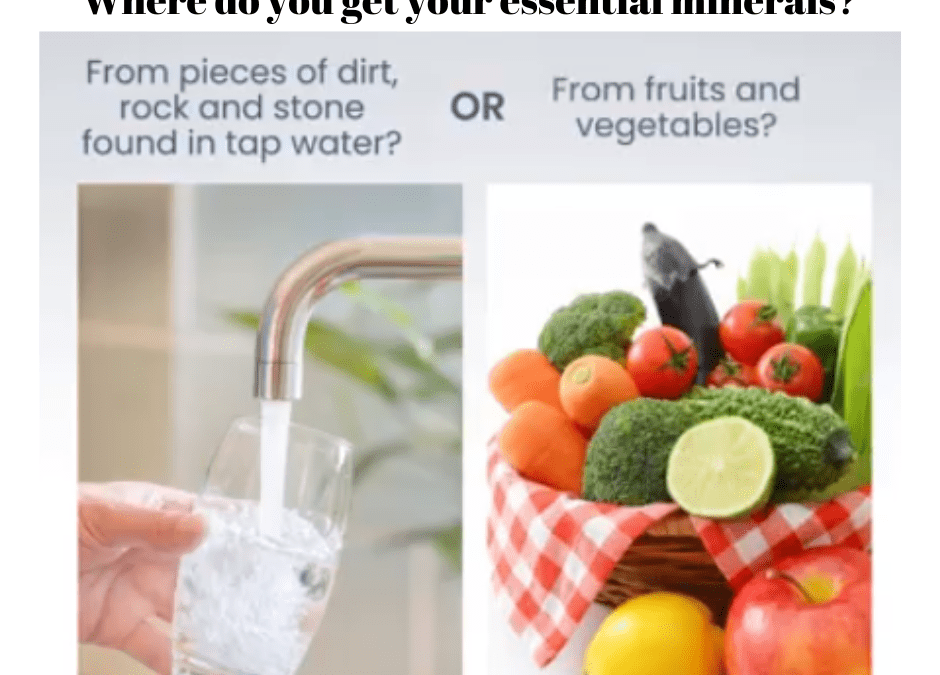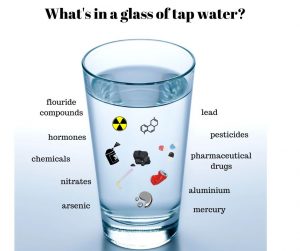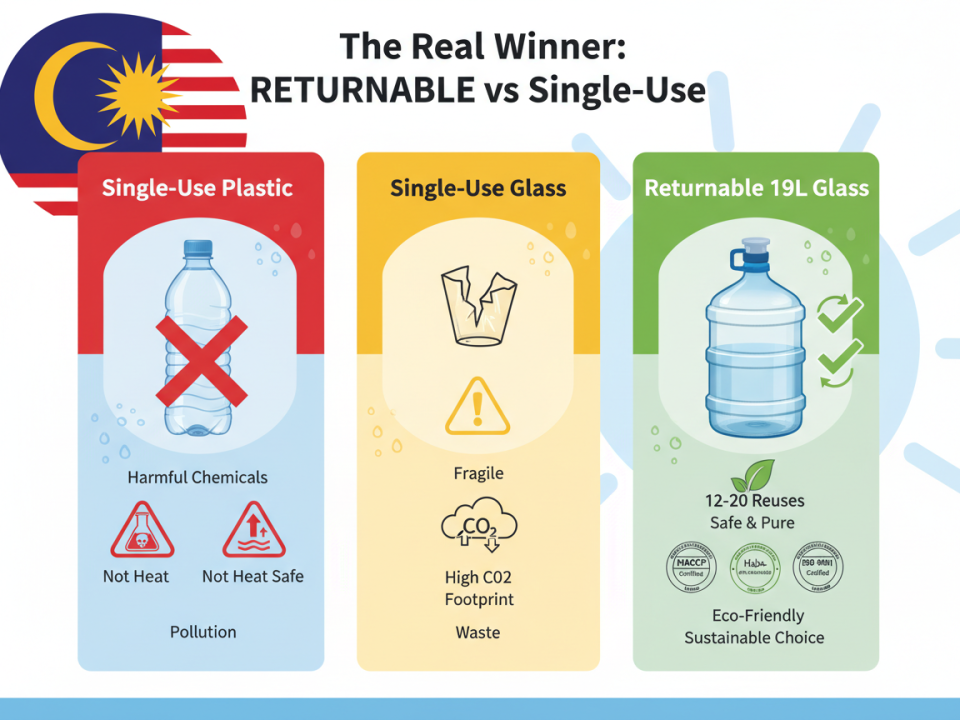
Organic vs Inorganic Minerals
31/08/2022
What distilled water can do for your health
31/08/2022Does Distilled Water Leach Minerals from My Body?
Absolutely, not! In fact just the opposite has been found to occur in cellular research studies. It is a mistaken belief that drinking pure distilled water reduces valuable minerals from living human tissues.
There are two types of minerals, organic and inorganic. Human physiology has a biological affinity for organic minerals.
Most organic minerals for our body functions come from dietary plant foods.
A growing plant converts the inorganic minerals from the soils to a useful organic mineral.
Tap water presents a variety of inorganic minerals which our body has difficulty absorbing.
Their presence is suspect in a wide array of degenerative diseases, such as hardening of the arteries, arthritis, kidney stones, gall stones, glaucoma, cataracts, hearing loss, emphysema, diabetes, and obesity.
What minerals are available, especially in “hard” tapwater, are poorly absorbed, or rejected by cellular tissue and, if not evacuated, their presence may cause arterial obstruction, and internal damage.
Even if the human tissue suddenly developed the ability to absorb inorganic minerals from tap water, it would take an enormous amount of tapwater to supply the bare minimal mineral quantities for human life functions.
If (for example) the rich inorganic mineral content of the tap water in Reno, Nevada were modified so that it would convert the daily Calcium requirement (RDA) from its inorganic calcium solutes, you would have to drink 28 litres of their tap water!
When inorganic minerals are “removed” from tapwater, by converting it into pure distilled water, the result is a remarkable biological mineral absorption for both health and maximal metabolic activity.
Read here to know more about organic vs inorganic minerals
Are you missing out on minerals if you drink distilled water?
Some people argue that because distilled water has had all the minerals removed, your body will be missing out on vital minerals. Let’s look at the facts.
Humans evolved in jungles where the primary water source is distilled water in the form of rain, so we evolved to get minerals from food not water.
The idea that water is a valuable source of minerals is again non-science. Take a look at this table, it lists the amount of minerals present in Evian (a good benchmark mineral water), the amount of minerals your body needs and how much Evian you would need to drink if you used it as your source of minerals.
Mineral |
Quantity in 1L of Evian |
Daily Requirement |
Daily Volume of Evian Needed |
Calcium |
76mg/L |
700mg |
9 litres |
Potassium |
1.1mg/L |
3500mg |
3182 litres |
Magnesium |
25mg/L |
270mg |
11 litres |
Sodium |
6.8mg/L |
6g |
882 litres |
To get enough Sodium from Evian, you would need to drink 882 litres a day! It you were able to drink that much mineral water you would overload your system and die before you got any of the benefits. The fact is, we get vitamins and minerals from food.
Additionally, it’s easy to think that just because it’s called a “mineral” it must be good for us and we must need it. Let’s take Sodium. Yes our bodies need Sodium but the reality is most people are massively overloaded with Sodium because we all consume far too much Sodium Chloride (salt). In fact the table above lists a daily requirement of 6g.
Any water, even the best mineral waters are NOT good sources of minerals.
And some of the minerals they supply we actually get too much of anyway. If you want minerals go and eat fruit, vegetables, nuts, seeds, and dairy products. Additionally, because we are evolved to get vitamins and minerals from food you find their bioavailability to your body is greater than getting them from a source like water.
CONCLUSION: water is not an effective mineral source, food is. Many of the minerals in water we are over-supplied with.
Sources : https://www.megahome-distillers.co.uk/minerals-and-how-to-replace-them-if-you-drink-distilled-water
Related posts
28/11/2025
29/09/2025
31/08/2025






